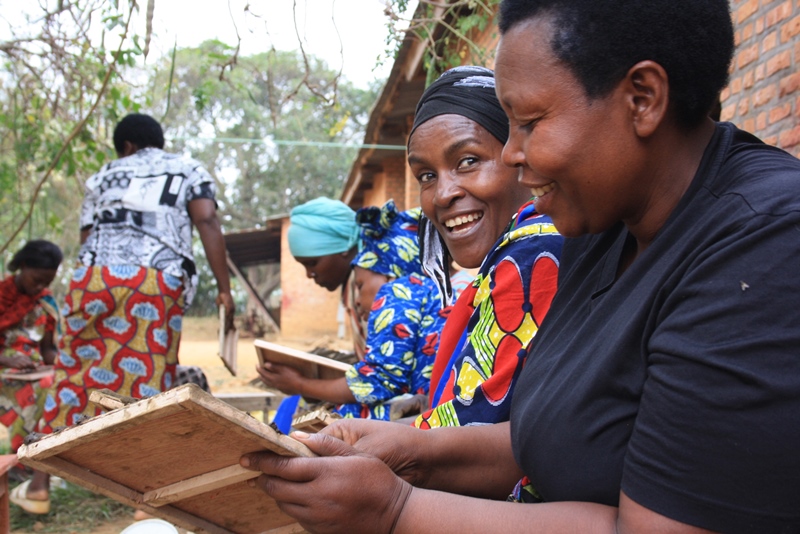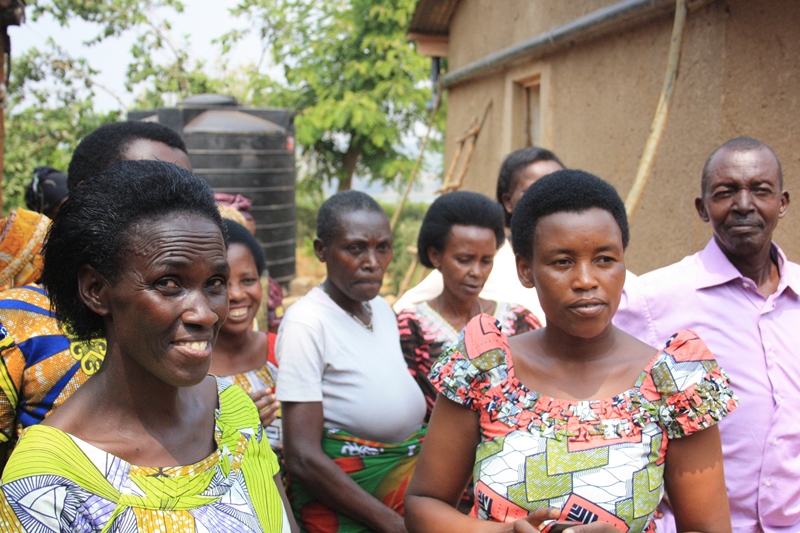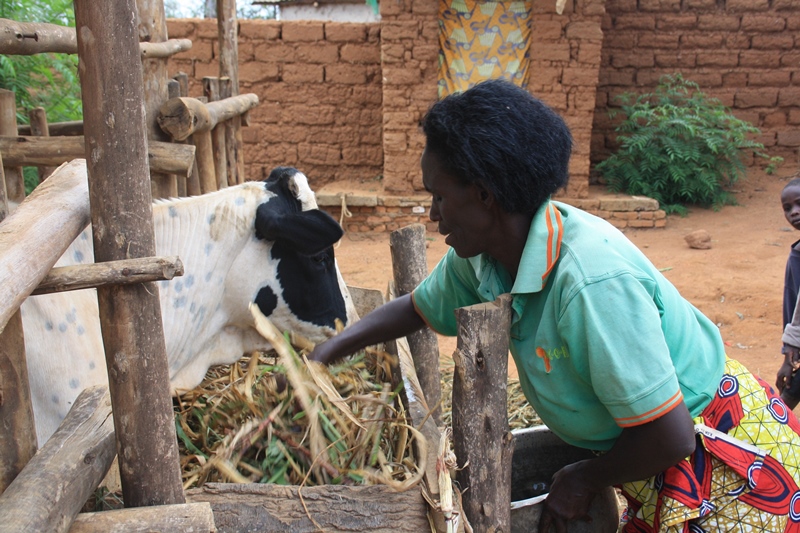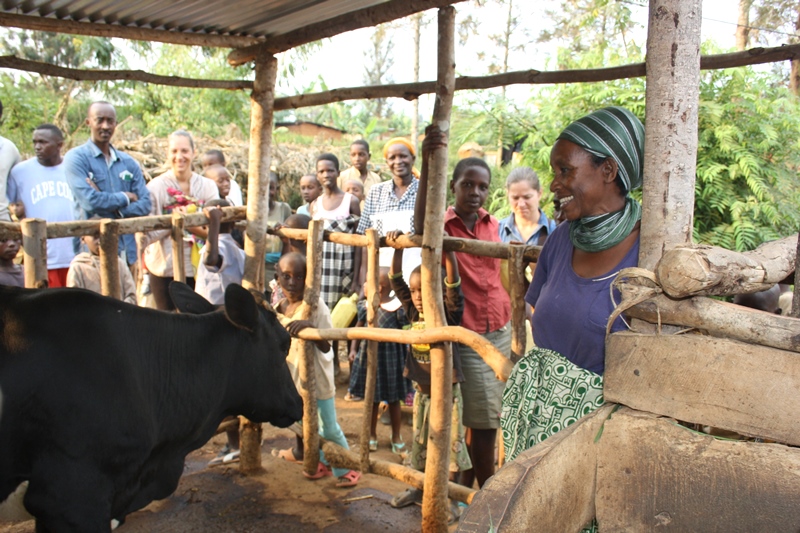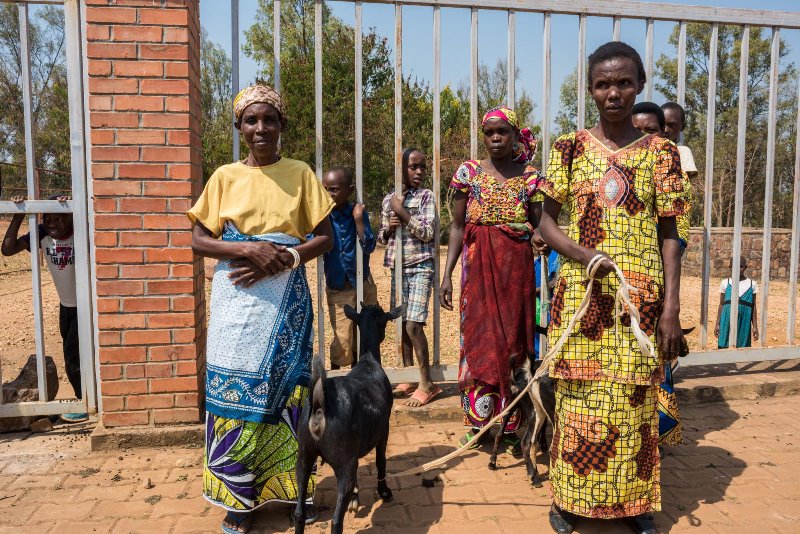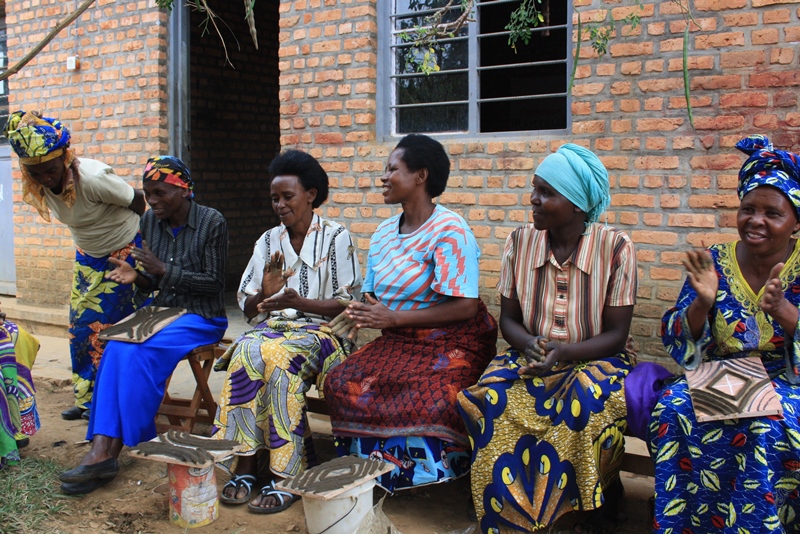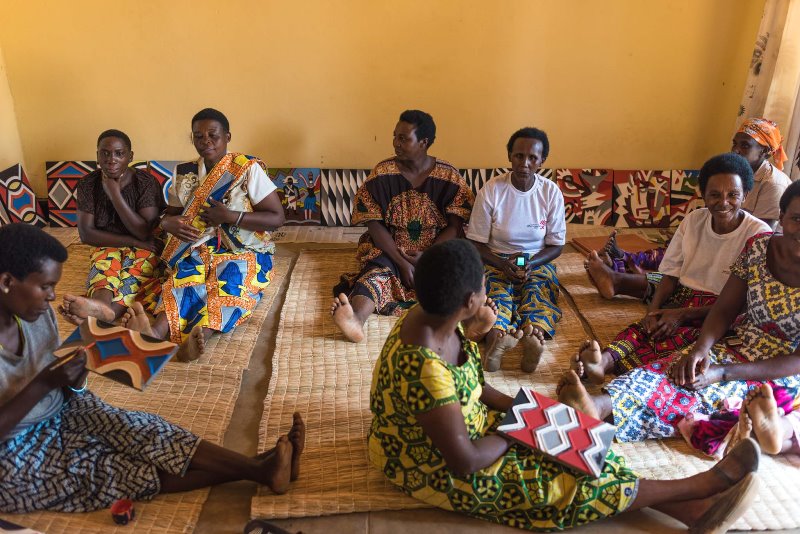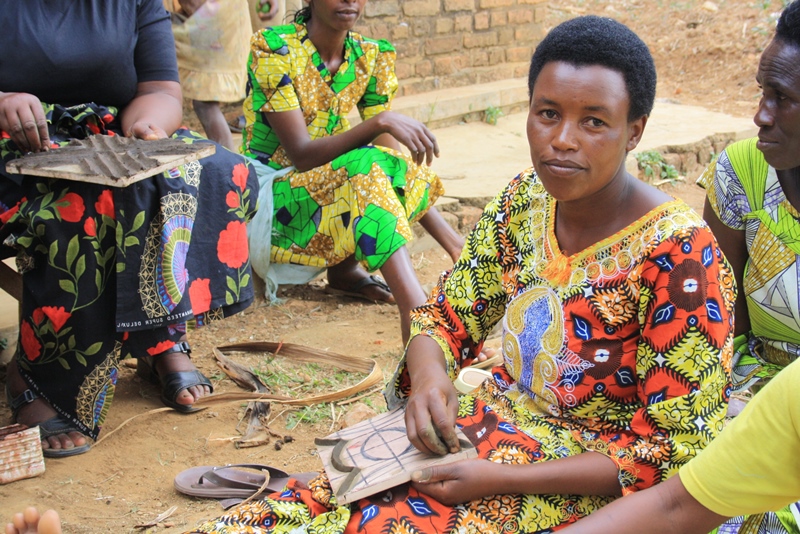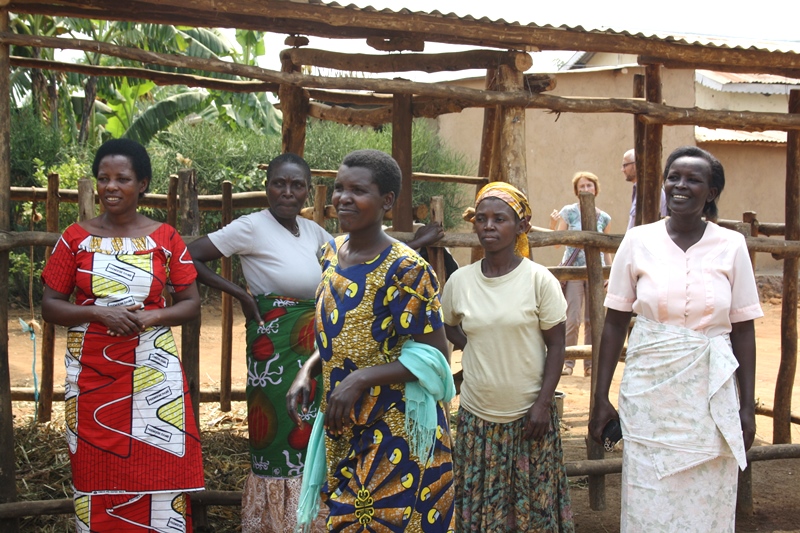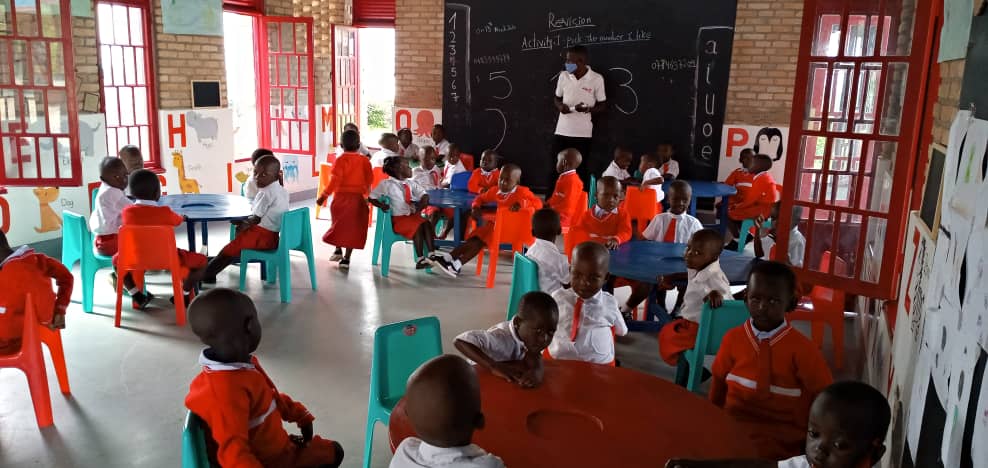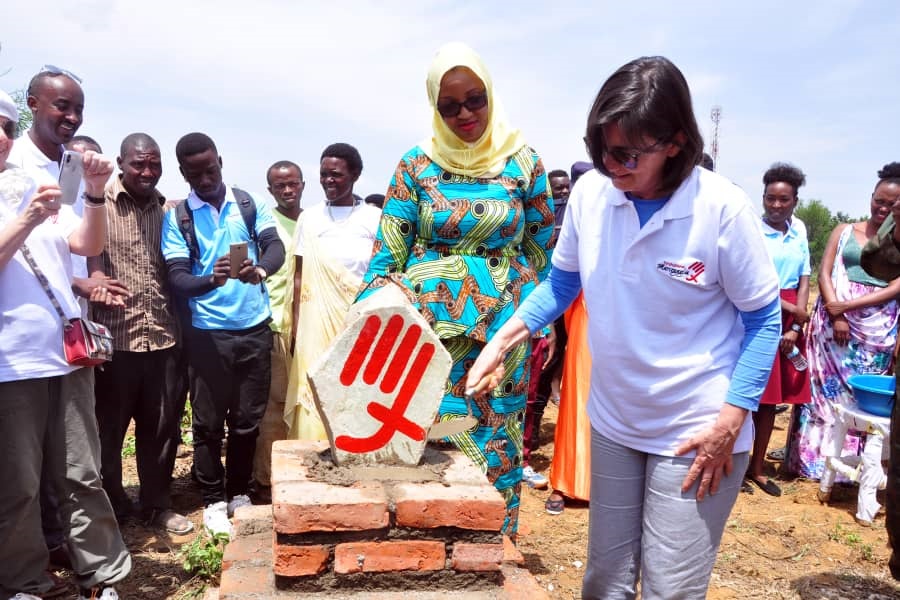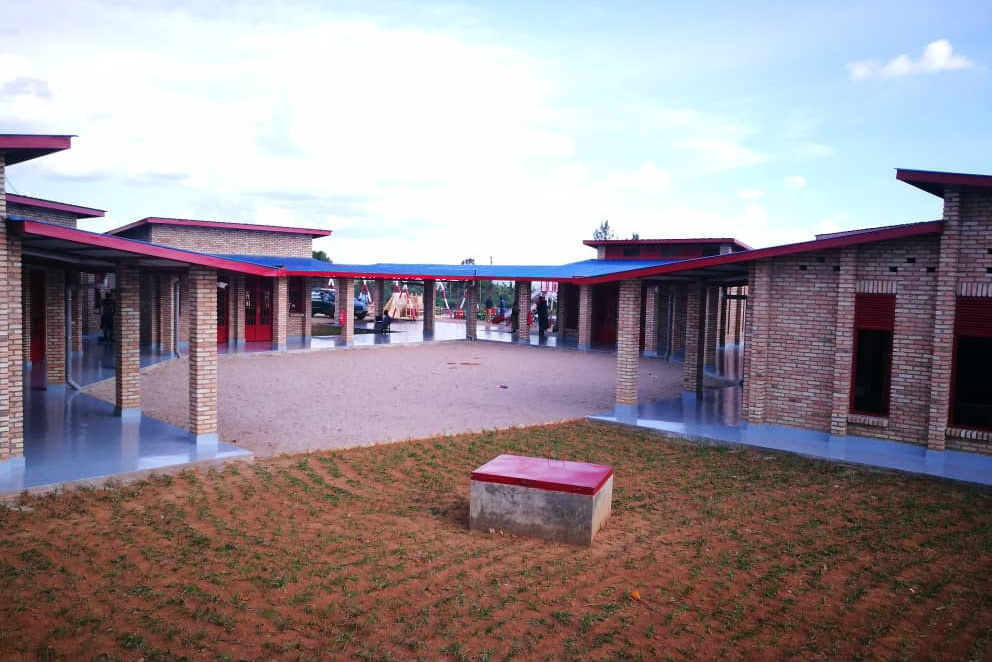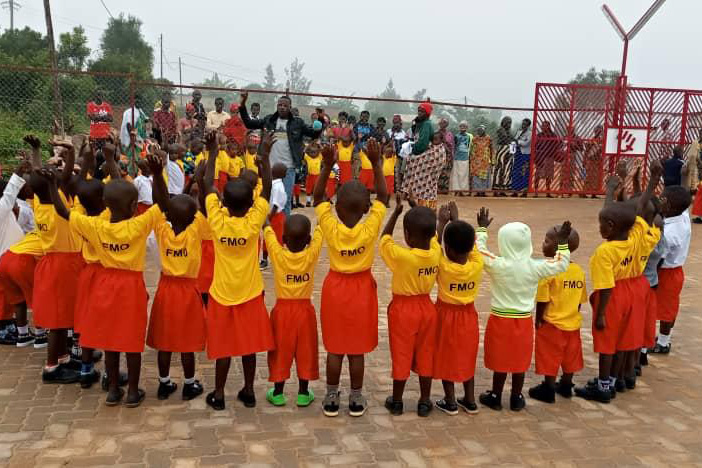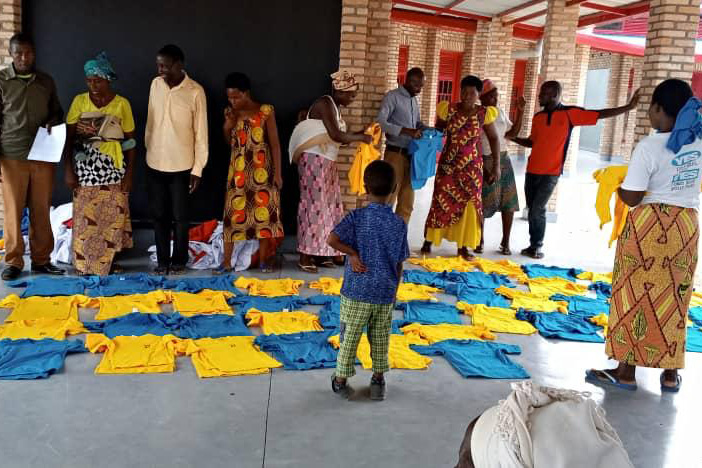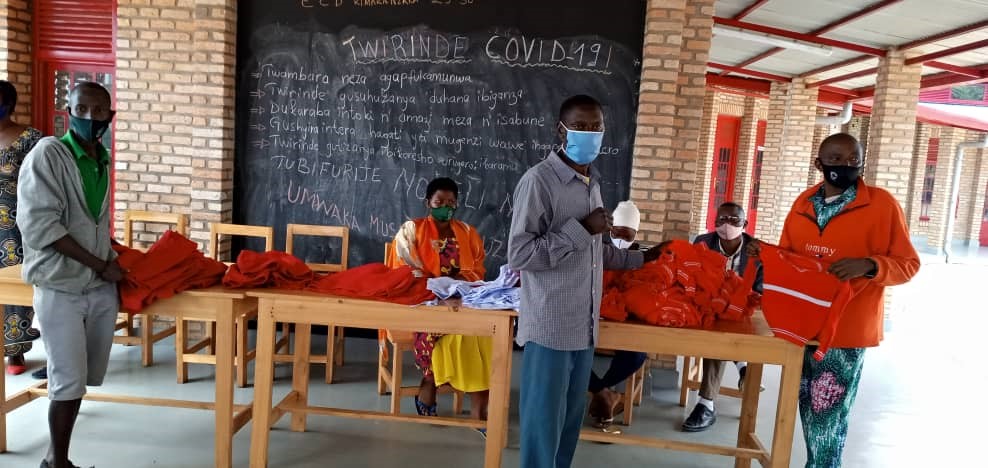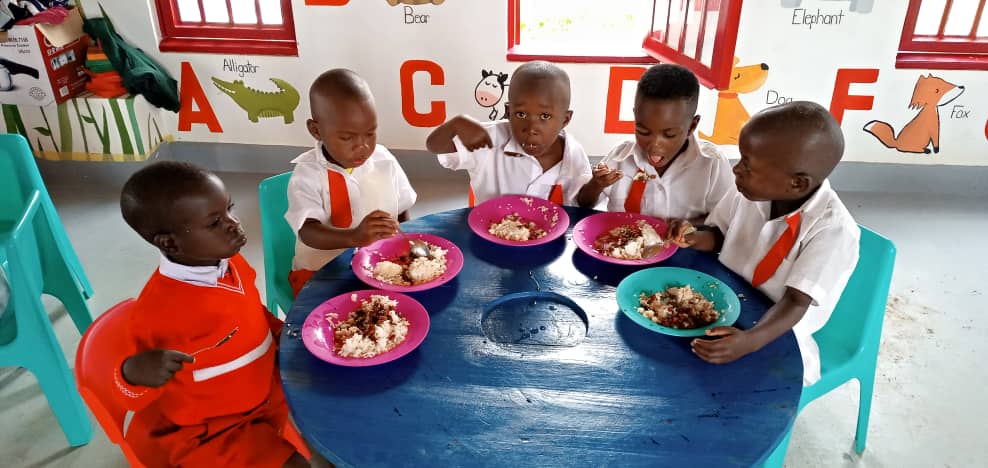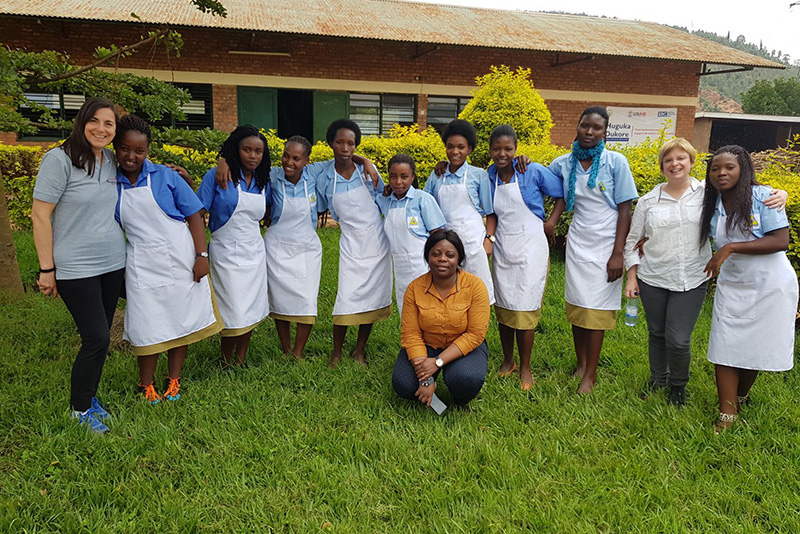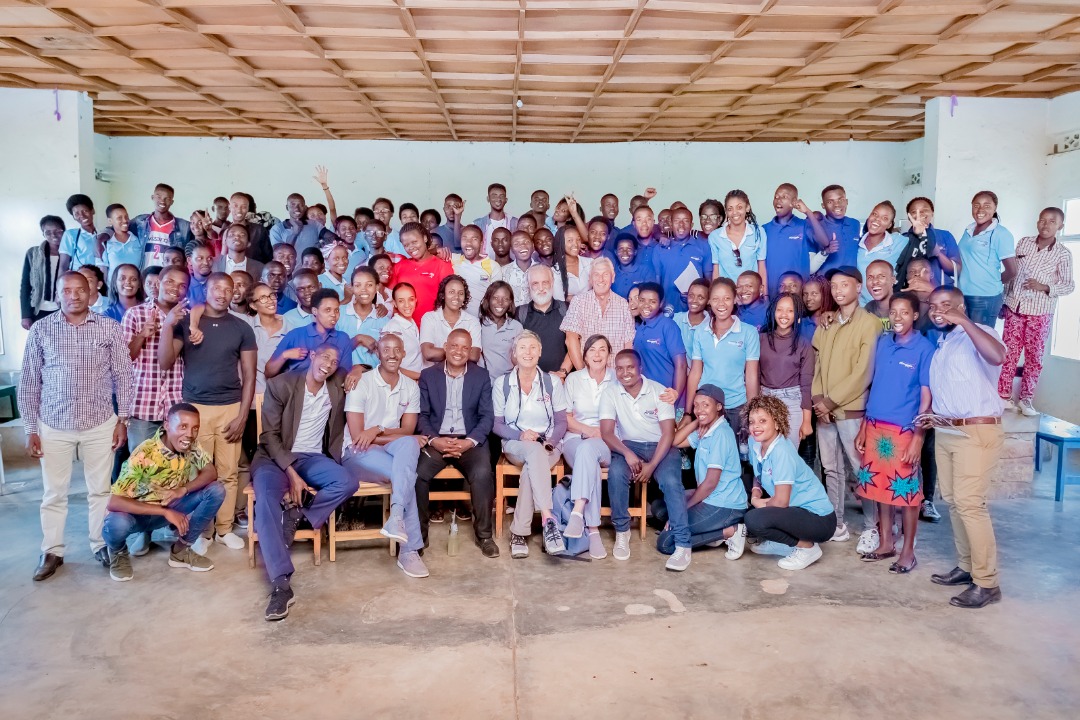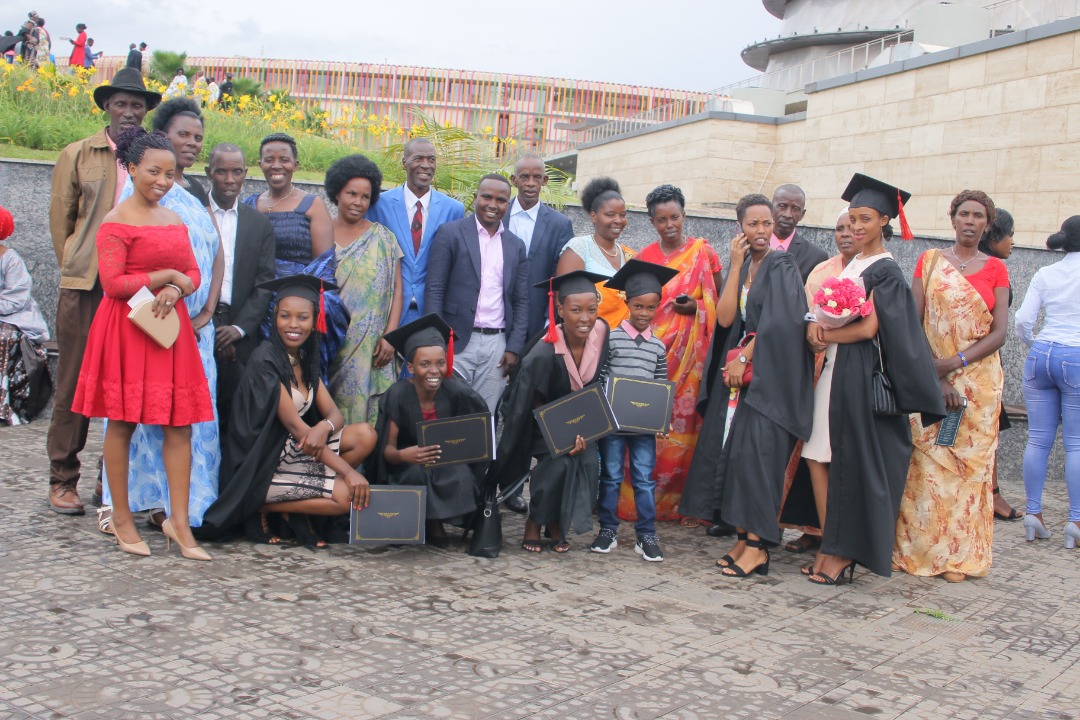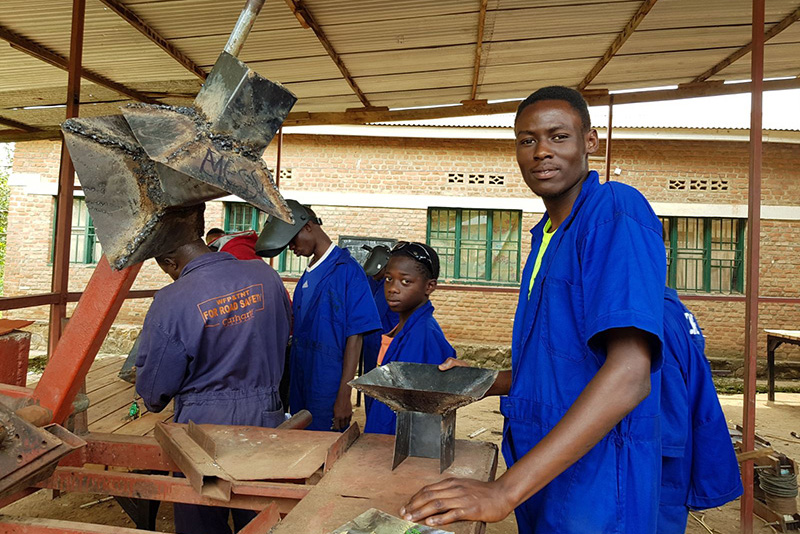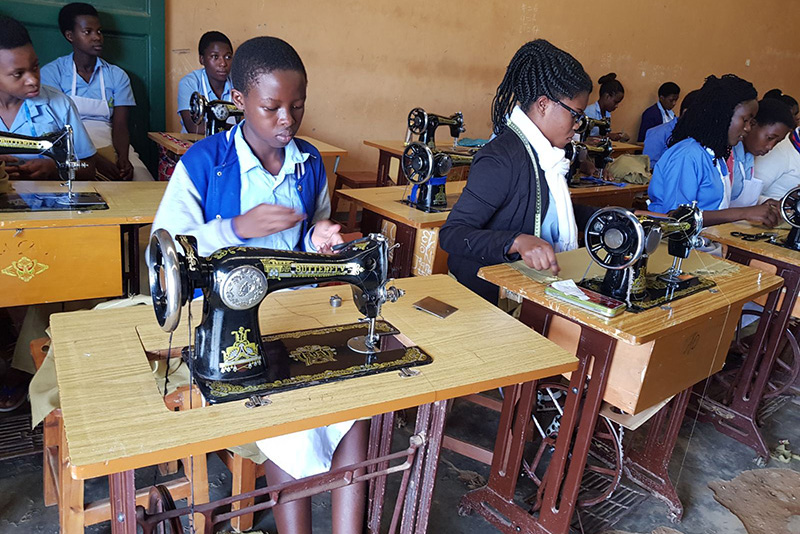Fondazione Marcegaglia has been working since 2013 in Rwanda in the district of Bugesera, in the eastern province of Rwanda where the population often has to deal with the problem of drought and the consequent famines and where many women, who have been widows due to the genocide, have to support entire families on their own. In this context, Fondazione Marcegaglia has decided to work directly, thanks to the presence of some Rwandan representatives responsible for managing the project on site, and in close collaboration with local institutions such as the Rwanda Agriculture Board and the District of Bugesera. The idea was to fit into pre-existing government programs that could have a real impact on the population without imposing interventions lowered from the outside.
EntrepreneurshipRwanda Project
Starting from women and young people to develop an entire community
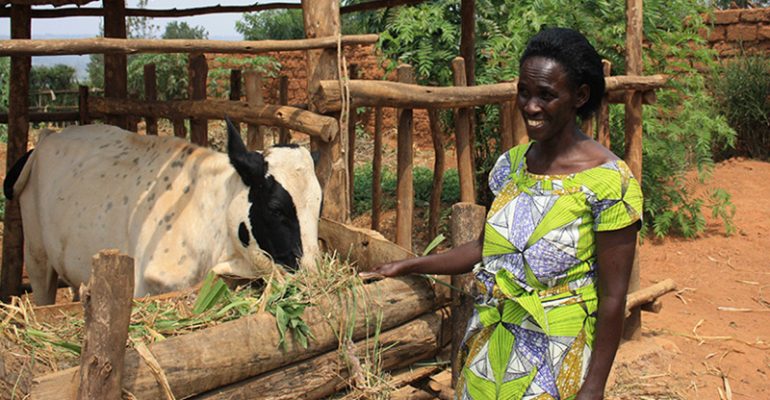
- PlaceBugesera, Rwanda
- PartnerRwanda Agriculture Board, Bugesera District
- Beneficiaries8.000 families of Rilima, Shyara, Nyarugenge
- Period2013 – ongoing
- Budget907.000€
The context
The One Cow project
The first step was to embrace an enlightened government program “One cow for poor family” (a cow for every poor family) designed to support the most vulnerable sections of the population by promoting traditional economic activity: breeding. Given the validity of this program, in 2013 Fondazione Marcegaglia decided to implement it in one of the poorest areas of the country, the district of Bugesera and in particular in the village of Rilima. The intent of the Foundation, however, was to make the intervention more effective in the long term by selecting women from all possible recipients, for their reliability and entrepreneurial propensity, and adding to the donation of a pregnant cow other collateral interventions such as training, the accompaniment of the veterinarian, the donation of goats and the start of vegetable gardens.
The first 20 beneficiaries of the “One Cow” project were immediately joined by 50 other women with the “Three Goats” project which provided for the donation of 3 goats to the beneficiaries who did not have enough land to keep the cow. The positive effect of the project was evident already after a few months: thanks to the milk produced, women improved the nutrition of their families and started a small income-generating activity in order to pay for health insurance, send children to school and live with dignity. From 2013 to 2020 488 families entered the project, but this number is constantly evolving because the calves born will be sold to other women thus creating a virtuous circle of development.
Some of the beneficiary women also gathered in a cooperative not only to meet and support each other but also to start other income-generating activities such as the production of artisan paintings and agricultural activities. Currently the Abizeranye cooperative is made up of 22 women who are also committed to supporting the weakest people in the community by paying health insurance to poor families and distributing the milk produced to combat child malnutrition.
Other interventions in favor of the community
The success of the One Cow project in activating the entrepreneurial skills of women has been possible over the years and at the same time enhanced by other well-rounded interventions of the Rilima community with an integrated and holistic approach that has made it possible to achieve considerable development goals and achievement of the Sustainable Development Goals.
The new Early Childhood Development Center responds to a need felt by women in the Rilima community, but at the same time is part of a model promoted by the government and already implemented and tested in other contexts. The Center, built in 2019 and operational since January 2020, responds to the need for a place to welcome and look after children of the preschoolers who do not currently have a dedicated care place especially when mothers work. The place will promote an adequate intellectual, social and physical development of the child, while promoting the training of mothers so that they can continue at home to ensure proper nutrition and health care. Currently 120 children between 3 and 6 years of age from disadvantaged or single-parent families are welcomed every day. The staff of the center will consist of 3 professional educators, a caretaker and a cook. The program to combat malnutrition is integrated with the center’s activities with a preventive approach based on the nutrition education of mothers. In fact, mothers receive training on how to prepare food and practice in the center kitchen, they then receive farm animals, seeds, mushrooms, the tools to create a vegetable garden so that they can put into practice the training received and improve the feeding of their children. and the whole family. Marcegaglia Foundation is also committed to supporting the other ECDs in the Bugesera area with the supply of food, teaching material and support for the implementation of structural interventions to ensure the safety of the classrooms.
The training of young people and especially girls has always been at the center of the action of the Marcegaglia Foundation, to guarantee the new generations the tools to be promoters and creators of economic and social development in their communities. Thanks to the “Girls Scholarship” and “TVET Scholarships” projects, from 2017 to 2019 166 worthy young people were supported who undertook annual professional courses to become: chefs, seamstresses, mechanics, IT technicians, hairdressers. 8 girls instead embarked on a two-year course in Hospitality Management at the Akilha Institute in Kigali graduating in October 2019.
In 2020, the Didactic Tailoring in Rilima was also inaugurated where girls can learn the trade and start their own business.
In order to diversify the family income, which is mainly based on small-scale agriculture and land exploitation, small business initiatives and some cooperatives have been financed and presented their projects to the local committees appropriately established in Rilima, Shyara and Nyarugenge. From 2018 to 2020, 200 new small businesses were supported that allow as many families economic independence.
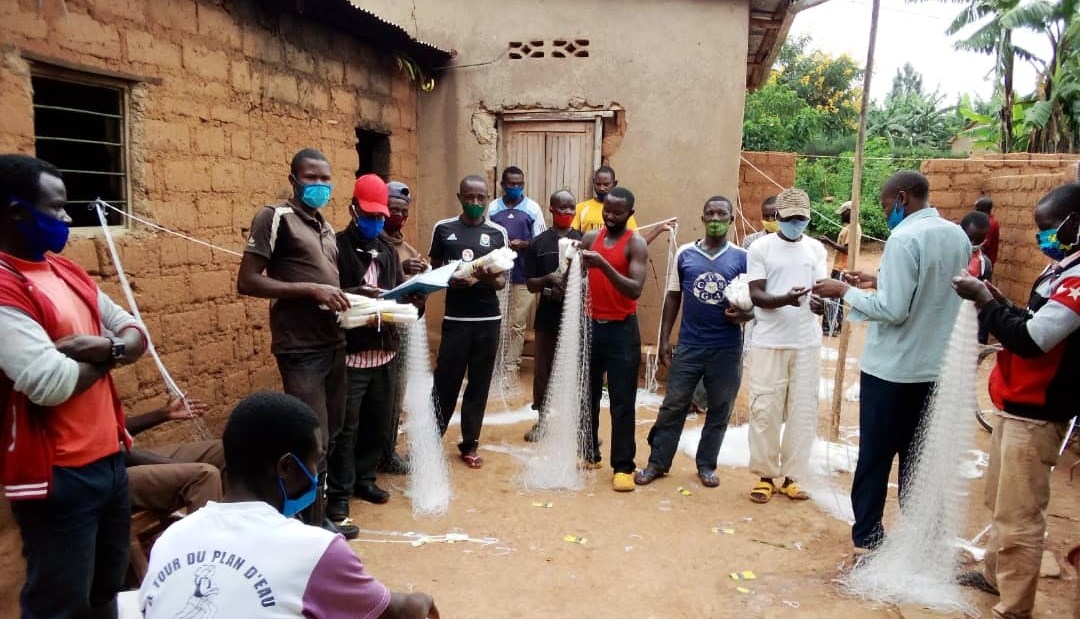
“School feeding program” is an intervention supported by the Marcegaglia Foundation since 2015 within 4 schools in the district of Bugesera (Rilima, Kamabuye, Katarara, Nyabagendwa). Children and young people attend school both in the morning and in the afternoon and, being unable to return home, often too far away, have to pay a contribution for lunch consisting of a plate of rice and beans. Unfortunately, some families cannot afford this expense every month and so their children risk being excluded from the class and not continuing their studies. The Foundation intervenes in support of 528 students from the most deprived families ensuring a hot meal every day.
“Malnutrition Free” is the program to fight child malnutrition to which the Foundation has joined since 2019 through the Village Kitchens. Over 1,400 children were monitored for symptoms of malnutrition. In milder cases, food parcels containing porridge, eggs and milk were distributed weekly, while the most serious cases were hospitalized in the clinic of the Gasore Foundation.
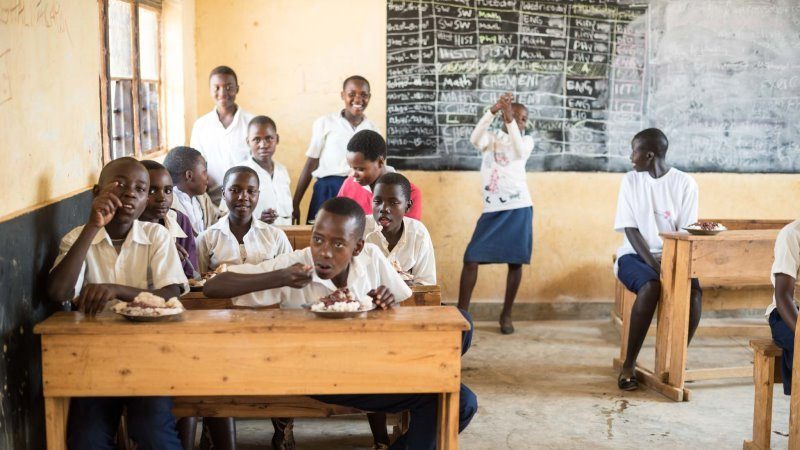
Food support, especially for the weakest sections of the population, is a priority. The “One Cow” project was in fact supported starting from 2016 with the “Fruit Trees” project, the construction of a fruit plant nursery that allows the distribution every year about 5,000 seedlings that 2,500 families have planted on their land to make grow fruit and vegetables and alleviate food shortages they suffer from.
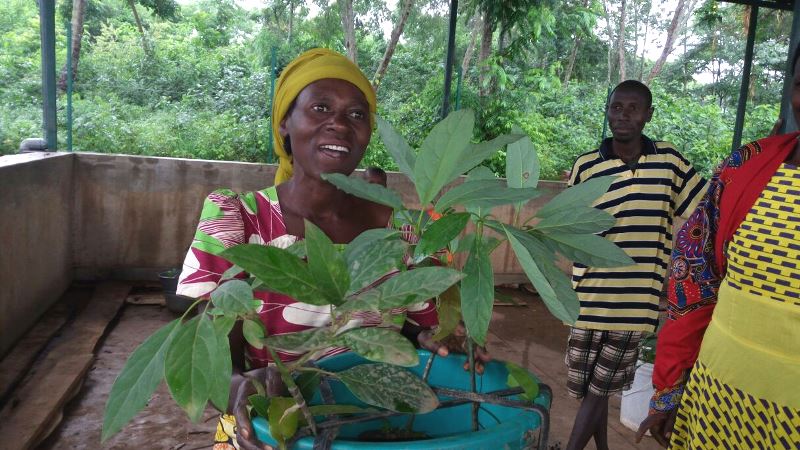
Water is a precious asset for the Rilima community especially in the dry season and often women and children put their safety at risk to collect it from the lake, populated by crocodiles. Through this intervention, in 2014 cisterns for the collection of rainwater were distributed to the first 20 beneficiaries of the One Cow project. In 2016-2017, Community cement tanks were also installed for the collection and distribution of water, which meet the needs of most of the inhabitants. Since 2018, pumps to irrigate the fields have been supplied every year to agricultural cooperatives.
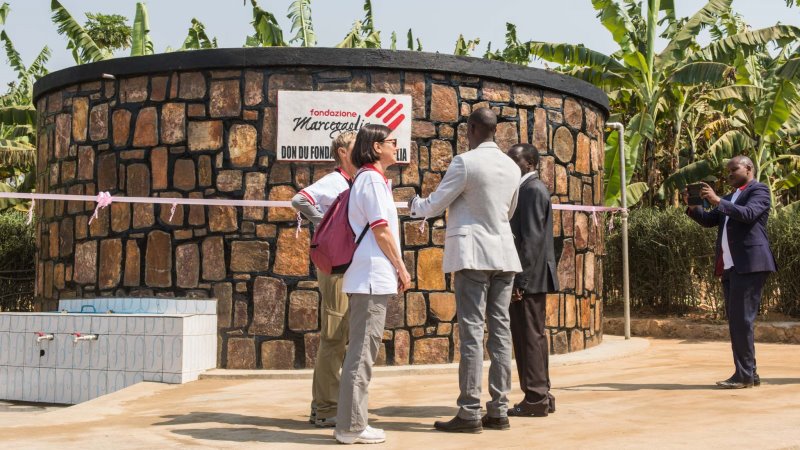
We need your help
Find out how a person's fate can change thanks to you!
Support the Rilima community in Rwanda with us and help us expand the project to new beneficiaries. With your donation we will be able to support the children welcomed in the Early Childhood Center with educational material, food and clothes; we will be able to give scholarships to other deserving young people, to give cows and goats to other women with their families.
Specific donation for this project

